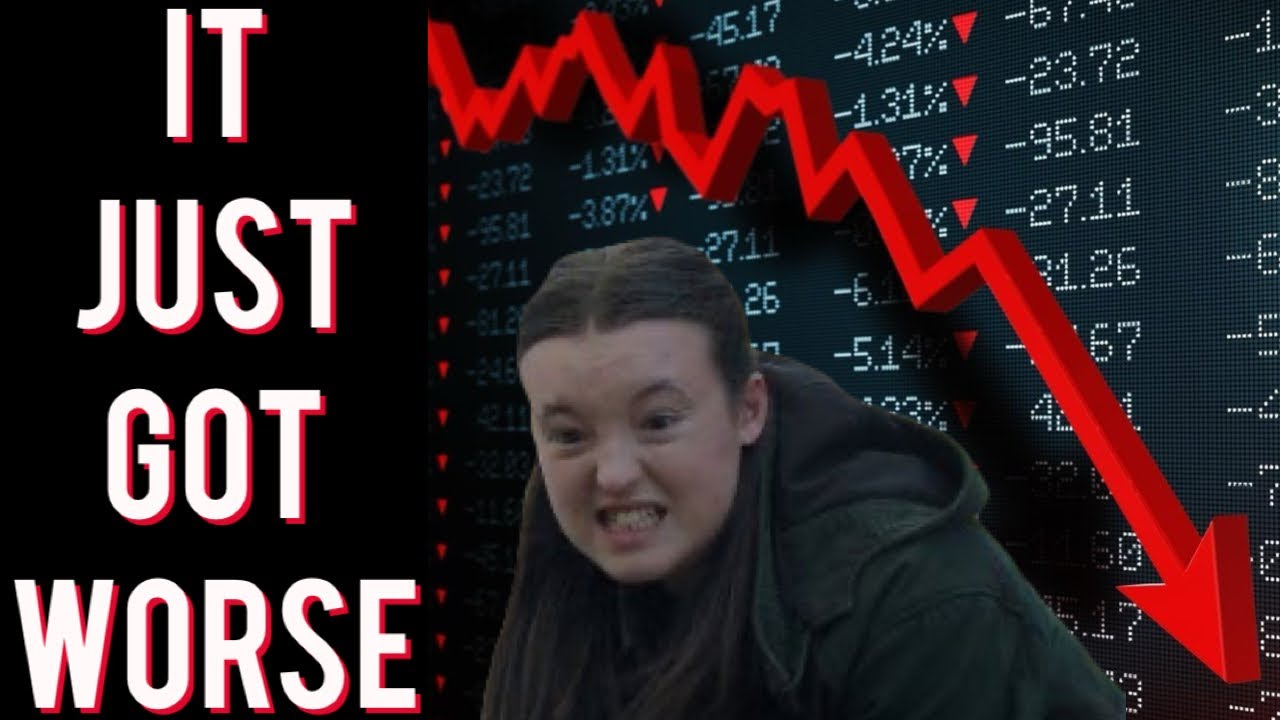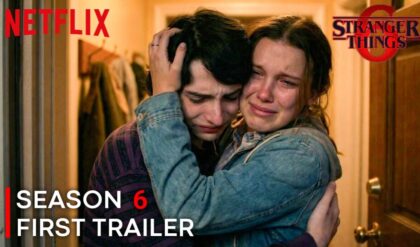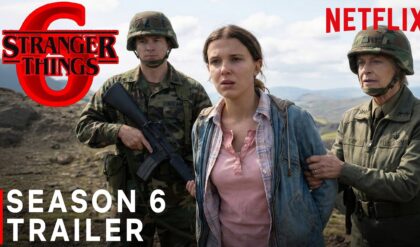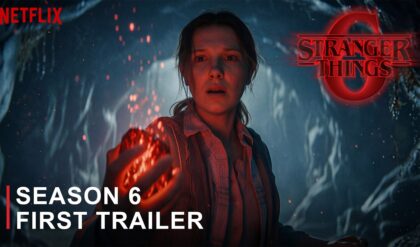The Last of Us Season 2 Faces Fan Fury: How a Cringe-Inducing Episode Turned Supporters Against HBO’s Hit Series
HBO’s The Last of Us, once hailed as a gold standard for video game adaptations, is now at the center of a firestorm. Following the release of its second season’s fifth episode on May 11, 2025, fans who championed the show’s first season and its faithful adaptation of Naughty Dog’s 2013 game have turned on the series, with posts on X declaring it “hated more than the game.” The backlash, sparked by what fans call a “cringe” episode, has seen supporters lament everything from tonal missteps to unrecognizable characters, with some claiming the show has surpassed the controversial The Last of Us Part II game in fan disdain. This article delves into the roots of this uproar, the episode that broke the fandom’s trust, and what it means for the future of this post-apocalyptic saga.

The Rise and Fall of a Beloved Adaptation
When The Last of Us premiered in January 2023, it captivated audiences with its gritty, emotional retelling of Joel and Ellie’s journey across a fungal-ravaged America. Starring Pedro Pascal as Joel and Bella Ramsey as Ellie, the series earned critical acclaim, Emmys, and a devoted fanbase for its fidelity to the 2013 game while expanding its world through standout episodes like Bill and Frank’s love story. Season 1’s success set sky-high expectations for Season 2, which promised to adapt the polarizing The Last of Us Part II (2020), a game that divided players with its bold narrative choices, particularly the early death of a major character.
Season 2, which premiered on April 13, 2025, initially maintained goodwill. The first episode introduced Kaitlyn Dever as Abby, a character whose actions in the game sparked intense debate, and addressed Season 1’s criticism of sparse infected encounters with a thrilling zombie raid on Jackson. However, by the fifth episode, the series’ trajectory shifted dramatically. Posts on X, such as one by @Sleepysalamand4 on May 14, 2025, described episodes 3–5 as feeling like a “shitty romcom with brutal violence,” while @iamrobtv called the season a “nosedive” from Season 1’s quality, citing “unnecessary changes” and “horrible pacing.” The sentiment culminated in claims that Season 2 is now more reviled than the game, a remarkable shift given Part II’s own contentious history.
The Infamous Episode: What Went Wrong?
The fifth episode, aired on May 11, 2025, is widely cited as the tipping point. Titled “The Price,” it advances Ellie and Dina’s (Isabela Merced) quest for revenge in Seattle, introducing new threats like the Seraphite cult and stalker infected, as described in a Guardian recap. The episode also features flashbacks with Joel, bringing back Pedro Pascal for emotional heft. However, fans on X, including @Person_Suit, lambasted the episode for its tonal inconsistency, accusing it of assassinating Joel’s character by portraying him in ways that felt manipulative or out of character compared to the game’s nuanced depiction.
A significant point of contention is the episode’s handling of Ellie and Dina’s relationship. In Part II, their romance is a grounded, tender counterpoint to the game’s violence, with moments like Ellie’s birthday flashback—teased in the Season 2 trailer as a fan-favorite scene—deepening their bond. The show, however, has been criticized for leaning into what fans call “teen drama” or “romcom” vibes, with dialogue and scenes that feel forced or overly sentimental. A post by @timsimtv on May 20, 2025, highlighted Ellie’s “radical shift” from the game’s vengeful, driven protagonist to a less intense, almost childish version, which fans found jarring given the story’s dark stakes.
The episode’s pacing also drew ire. Unlike the game’s deliberate buildup, the show’s seven-episode season has been accused of rushing key moments, such as Ellie’s encounters with the Seraphites and infected, which feel like “filler” to some fans. @Vara_Dark reported a Rotten Tomatoes audience score drop to 54% after the second episode, with Episode 5 exacerbating this decline as reviews on IMDb and Metacritic flooded with complaints about “crappy writing” and “unrecognizable characters.” The inclusion of a cult, a staple of post-apocalyptic stories, was criticized as cliché, with one X user lamenting, “I don’t want human drama, I want zombie mushroom men.”
Echoes of the Game’s Controversy
The backlash against Season 2 mirrors the vitriol that greeted The Last of Us Part II in 2020. The game’s early killing of Joel by Abby, played out in front of Ellie, shocked players, leading to review-bombing on Metacritic and death threats against actress Laura Bailey. Critics praised Part II for its bold storytelling, but fans felt betrayed by Joel’s death and the decision to make Abby a playable protagonist, forcing players to empathize with his killer. Posts on X from 2020, resurfaced by users like @cosmicbooknews, described the game as a “narrative betrayal,” a sentiment now echoed in Season 2’s reception.
However, Season 2’s backlash is distinct in its scope. While Part II’s hate was largely confined to gaming communities, the HBO series reaches a broader audience, amplifying the outrage. A New York Times article noted that the game’s controversial scene “stunned gamers” in 2020, and its TV adaptation in Episode 2 reignited this fury among new viewers, with X posts like @ArcanaLegacy’s meme capturing the fandom’s shock. The fifth episode’s perceived missteps have compounded this, with fans like @DamienNightwing calling Bella Ramsey’s Ellie “awful” and “unlikable,” a stark contrast to Season 1’s praise for her performance.
Cultural and Creative Tensions
The backlash also taps into broader cultural debates. Some negative reviews on IMDb, reported on May 5, 2025, accuse the show of pushing a “woke agenda,” particularly in its focus on Ellie and Dina’s queer romance. A Out article highlighted homophobic review-bombing, with users like “baelfire181” decrying the “teen drama” and “political agendas,” despite the game’s explicit inclusion of this relationship. This mirrors the game’s 2020 backlash, where transphobic and misogynistic attacks targeted Abby’s muscular physique and Ellie’s identity, as noted in a Den of Geek piece.
Showrunners Craig Mazin and Neil Druckmann, aware of the game’s divisive reception, have defended their changes. In a Variety interview, Mazin expressed curiosity about fan reactions, insisting the show’s “DNA” remains intact despite alterations like foregrounding Eugene (Joe Pantoliano), a minor game character. A ScreenRant article suggested that restructuring Abby’s story to reveal her motivations earlier—unlike the game’s delayed flashbacks—aimed to mitigate backlash, but posts like @MadisonMessiah’s indicate that changes to Ellie and Tommy’s (Gabriel Luna) motivations have alienated fans who valued the game’s intensity.
Creative decisions, such as reducing Abby’s muscularity, have also sparked debate. A GameRant post noted that fans on Reddit lamented this change, arguing it stripped Abby of a key aspect of her identity tied to her revenge quest. Meanwhile, the show’s increased focus on infected, like shamblers in the Seattle subway, addressed Season 1 complaints but failed to offset narrative grievances, as fans craved the game’s moral complexity over what they perceive as simplified drama.
The Bella Ramsey Factor
Bella Ramsey’s casting as Ellie has been a lightning rod. While praised in Season 1, Ramsey faced renewed criticism in Season 2, with some fans, per a The Indian Express report, fixating on her appearance or voice not matching the game’s Ellie, played by Ashley Johnson. Toxic comments, including misogynistic and transphobic attacks, led Ramsey to delete their Instagram account, as reported by Yahoo News. X posts like @DamienNightwing’s demand for a recast reflect a vocal minority, though defenders, such as an IMDb reviewer, argue that Ramsey’s performance remains a highlight, blaming the writing for Ellie’s “goofiness” and “snark” feeling off.
Implications for the Series
The backlash poses significant challenges for The Last of Us. With two episodes left in Season 2, including the anticipated museum flashback, Mazin and Druckmann face pressure to salvage the season. A Gizmodo article expressed excitement for this scene, noting its potential to restore fan goodwill by showcasing Joel and Ellie’s bond. However, posts like @iamrobtv’s vow to abandon the show until the finale suggest a steep climb.
The controversy also raises questions about the series’ future. Mazin has hinted at one or two more seasons to complete Part II’s story, but declining audience scores and review-bombing could impact HBO’s commitment. The game’s divisive ending, which critiques the cycle of revenge, may further polarize viewers if the show fails to refine its thematic depth, as some critics felt the game lacked sophistication.
Conclusion: A Fandom Fractured
The fifth episode of The Last of Us Season 2 has transformed a once-unified fandom into a battleground of disappointment and rage. What began as a promising adaptation has stumbled into a quagmire of tonal missteps, divisive changes, and cultural flashpoints, with fans declaring the show “worse than the game” that once sparked similar ire. As Ellie and Dina’s journey darkens, HBO must navigate a delicate path to restore trust, leveraging the game’s most cherished moments to remind fans why they fell in love with this world.
The backlash underscores a broader truth: adapting a beloved property is a high-wire act, where every choice is magnified. For now, The Last of Us stands at a crossroads, its legacy hinging on whether it can recapture the raw, emotional power that defined its origins. In a post-apocalyptic world, survival demands resilience—both for Ellie and the show itself.





